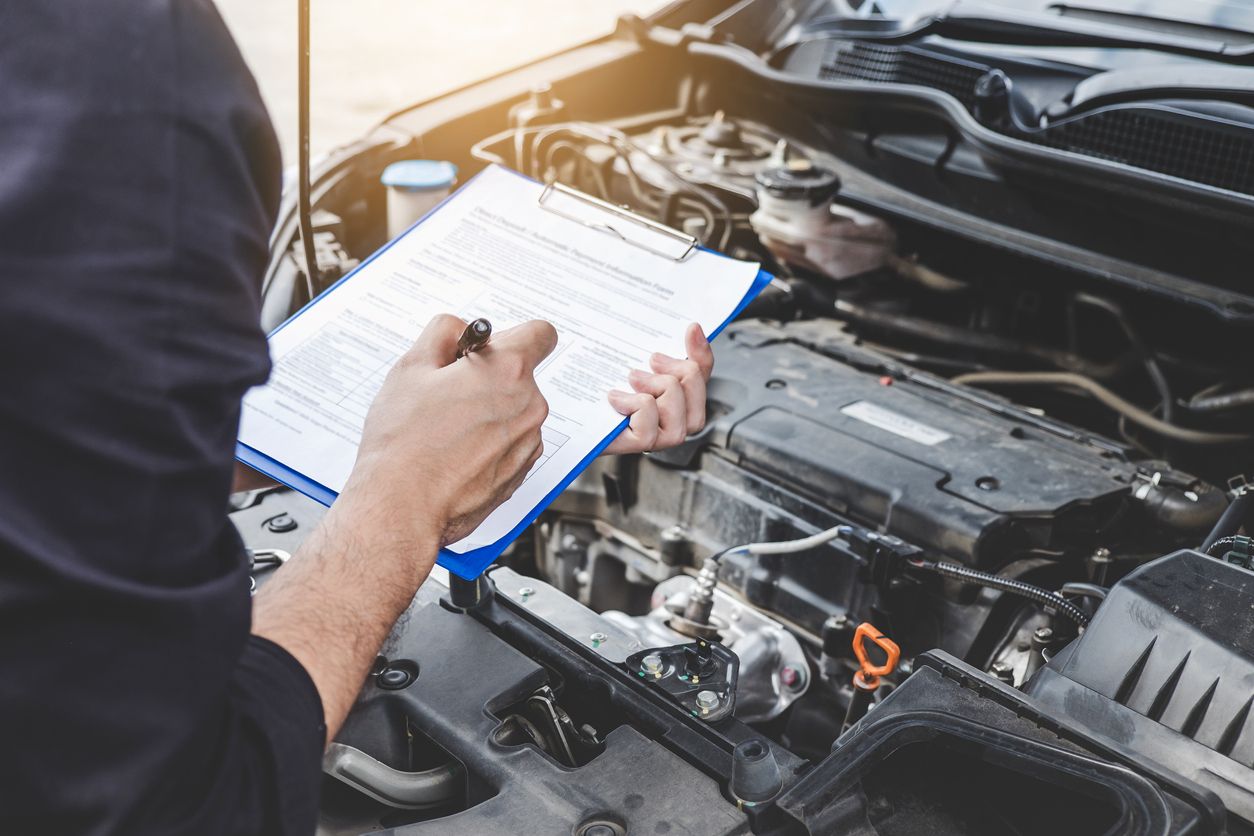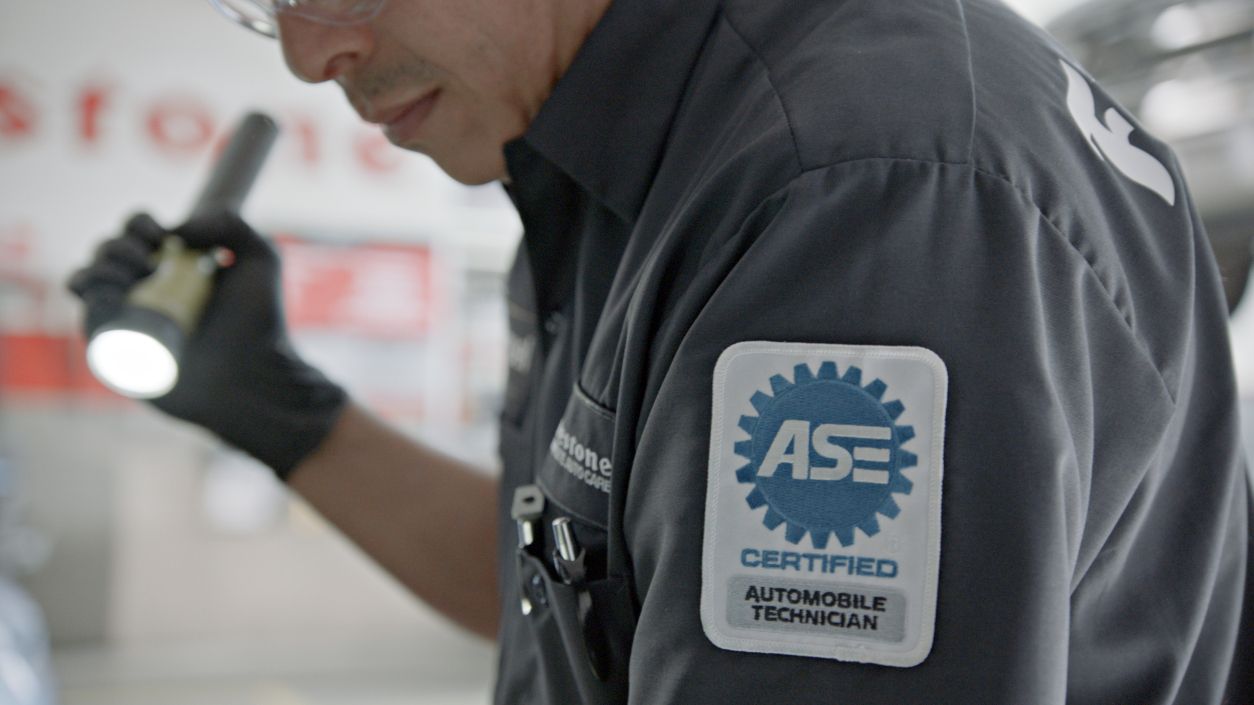Has a vehicle inspection been sitting unchecked on your to-do list? Are you wondering if you should even bother getting it done? A vehicle inspection might be more important than you think. Learn everything you need to know about vehicle inspections to decide if you should move it up on your to-dos.
What Does a Vehicle Inspection Include?
Vehicle inspection meaning can vary depending on which mechanic you visit and your local regulations. Shops may offer a simple inspection just to check the overall health of your vehicle. Other shops may offer a Vehicle State Inspection, which is needed in certain states to renew vehicle registrations or for filing property taxes. Some states have no requirements for a vehicle state inspection, others may require emissions testing, safety testing, or both.
So, what does a car safety inspection include? Generally, you can expect your safety inspection to cover the systems and components that make it safe for you to drive. The inspection will likely involve your brakes, mirrors, lights, seat belts, tires, window tint, windshield, wipers, steering, and suspension.
When you schedule an appointment with Firestone Complete Auto Care, your Complete Vehicle Inspection includes checks on the following components: battery, fluids, filters, lights, belts and hoses, tires, brakes, exhaust system, steering and suspension, and more.
Note: A Complete Vehicle Inspection is not a Vehicle State Inspection. Many Firestone locations also offer state emission and safety inspections. Contact your local Firestone Complete Auto Care to confirm the location offers the state inspection required in your area.
Emissions Testing
An emissions test, also known as a smog check, may or may not be part of your vehicle inspection. Emissions testing checks the amount of carbon monoxide (CO), carbon dioxide (CO2), hydrocarbons (HC), oxygen (O2), and possibly, nitrogen oxides (NOx) coming out of your exhaust system to ensure your vehicle isn’t puffing excessive pollutants into the air. Emissions tests aren’t always required, but if your check engine light is on, it’s likely time to come get it checked.
Does Firestone do emissions inspections? Many Firestone Complete Auto Care locations offer emissions testing, but you should always call ahead to double-check. If you fail your emissions test, our technicians can help you get your vehicle in passing condition.
Are Vehicle Inspections Really That Important?
You may think putting off your vehicle inspection — or skipping it altogether — isn’t a big deal, but you might be saying something different in a few months. Regular inspections are a great way to ensure your car is performing as it should and can come with many benefits, including:
- Saving you money. An inspection today could help catch any potential problems early, giving you time to fix them before they become costly.
- Helping prevent sudden breakdowns. Catching and fixing issues early can help prevent roadside breakdowns.
- Helping your vehicle last longer. Just like routine oil changes and tire rotations help keep your vehicle in great shape, so can inspections. When combined, regular maintenance and inspections can help you get the most miles out of your car or truck.
- Allowing you to plan ahead for expenses. At Firestone, we provide a list of potential concerns and pricepoints during vehicle inspections. For example, if your brake pads are on their way out but don't need to be replaced just yet, our technicians can tell you how much it will cost to resolve later, allowing you save ahead of time.
- Peace of mind. Whether you're heading out for a long road trip or frequently commuting to work, knowing how well the major systems of your vehicle are operating can be reassuring.
You also need to consider local regulations for vehicle inspections. Depending on where you live, you might need a state safety and/or emissions inspection to register your vehicle.
Are You Legally Required to Get an Inspection?
Every state has different requirements regarding state vehicle inspections. There are some states that require annual vehicle inspections. Others only require inspections under certain circumstances, like a vehicle transferred to a new state. And some states don’t require an inspection at all.
States That Require Vehicle Inspections
Many states require some sort of annual or biennial inspection, whether that’s a safety inspection, emissions testing, or both. Different states will have different standards for passing an inspection, so it’s important to visit a reputable inspection station. To find states that require annual vehicle inspections, be sure to check your area's regulations for up-to-date information. This can usually be found in detail on the state's DMV website.
States That Don’t Require Vehicle Inspections Annually or Biennially
Not every state requires annual or biennial inspections, but inspection rules can vary at the city or county level. It’s always a good idea to check local ordinances. If you’re moving across state lines, you also want to check if your new state requires an inspection before your initial registration.
And even if your state and locality doesn’t currently require an annual inspection, you should still consider getting one for the health of your vehicle — and your wallet.
Contact Your Local Firestone Complete Auto Care About Vehicle Inspections
Wondering where you can go for a quality vehicle inspection? Many Firestone Complete Auto Care locations offer state inspections and emissions testing. Visit your local DMV website to learn more about the current inspection requirements in your state. Then call your nearest Firestone Complete Auto Care to see if state inspection services are offered near you!



